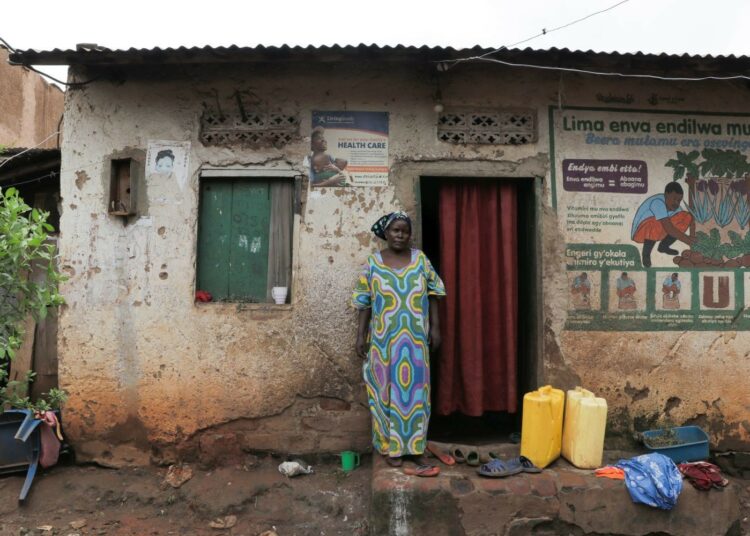As bad as the situation is in the urban areas, one cannot begin to imagine what it is like in the rural areas in terms of infrastructural facilities. The near absence of motorable roads, potable water and electricity, for instance, paints a vivid picture of a nation in dire need of rebuilding.
According to UNICEF, “about 70 percent of Nigerians are reported to have access to basic water services.” However, over half of these water sources are contaminated. Although 73 percent of the country’s population have access to a water source, only nine litres of water on average is available to a Nigerian daily.
In a 2021, a WASHNORM Report revealed that 23 percent of Nigerians lack access to basic water supply services and only 10 percent of the population have access to basic water, sanitation and hygiene services combined.
In the rural areas of Nigeria, 39 per cent of households lack access to at least basic water supply, while only half have access to improved sanitation says a 2021 report by the World Bank.
In 2018, the federal government made strong its commitment towards improving access to Water Supply Sanitation and Hygiene (WASH) services and initiated the National Action Plan (NAP), which would ensure universal access to sustainable and safely managed WASH services by 2030, in accordance with the Sustainable Development Goals (SDGs).
In terms of road network, Nigeria is said to have the largest road network in Africa. Sadly, reports state that out of 195,000 kilometres, just about 60,000-kilometre road network is paved. Even more recently with the floods, more roads have been damaged. It is no news that the bad roads in rural areas have led to road accidents causing a lot of deaths.
In the third quarter (Q3) of 2021, media report put a sum total of road traffic crashes at 3,134, revealing a decrease of 1.60 percent from Q2 2021, which recorded 3,185. This, the report said, increased by 8.71 per cent in Q4 2021 when 3,407 cases were recorded.
Serious cases of road accidents in Q3 2021 were higher with 2,008, compared to fatal and minor cases with 723 and 403 respectively. Similarly, serious cases stood at 2,199 in fourth quarter (Q4) 2021 compared to fatal with 888 and minor with 320, according to reports by National Bureau of Statistics (NBS).
The NBS also mentioned that the number of vehicles involved in road traffic accidents were 4,946 in Q3 2021 compared to second quarter, (Q2) 2021 which recorded 5,134. This shows a decline of 3.66 percent in Q3 2021. Also, 5,323 vehicles were involved in crashes in Q4 2021, showing a 7.62 percent growth from the preceding quarter.
The power sector is not left out as Nigerians continue to go through sudden blackouts and erratic power supply. In spite of the $3.2 billion released by the Central Bank of Nigeria (CBN) in the preceding five years to electricity generating and distributing companies for procurement of metres and other equipment to enhance electricity in Nigeria, the sector has still remained nightmarish with the nation’s power grid often collapsing and causing blackouts in most of the states and the Federal Capital Territory (FCT).
Nigeria’s power generation is primarily thermal and hydro with an installed capacity of approximately 13,000 megawatts. For several years, authorities managed to distribute an estimated 4,500 megawatts of its installed capacity. There has not been much significant progress since the sector was privatised.
To compound this problem, premium motor spirit (PMS) which would have assuaged electricity issues through the use of generators by some homes, has become scarce commodity as a result of logistical and other issues.
This newspaper is compelled to urge the federal government to stay true to its declaration of giving Nigerians a stable power sector to drive the economy onwards and upwards. We are worried that most development efforts are concentrated in the urban areas as if the rural communities do not matter. Curiously, infrastructure is one area the President claims to have done so much. Maybe. But the fact remains that a lot is yet to be achieved in this regard.
Similarly, the federal government needs to work more on its commitment to achieve the SDG 2030 goals for universal access to sustainable and safely managed WASH services by 2030. We are always talking about the health sector, and hope that the federal government will address this matter appropriately.
The focus on infrastructure is borne out of the understanding that they constitute the livewire of meaningful development. Therefore, in our view, providing infrastructure especially in the rural areas will benefit more of the startups that abound in those places who are not financially strong, enough to explore other sources because of the excessive cost implications. That, in our opinion, makes the need to provide those facilities in those areas not only urgent but imperative.





